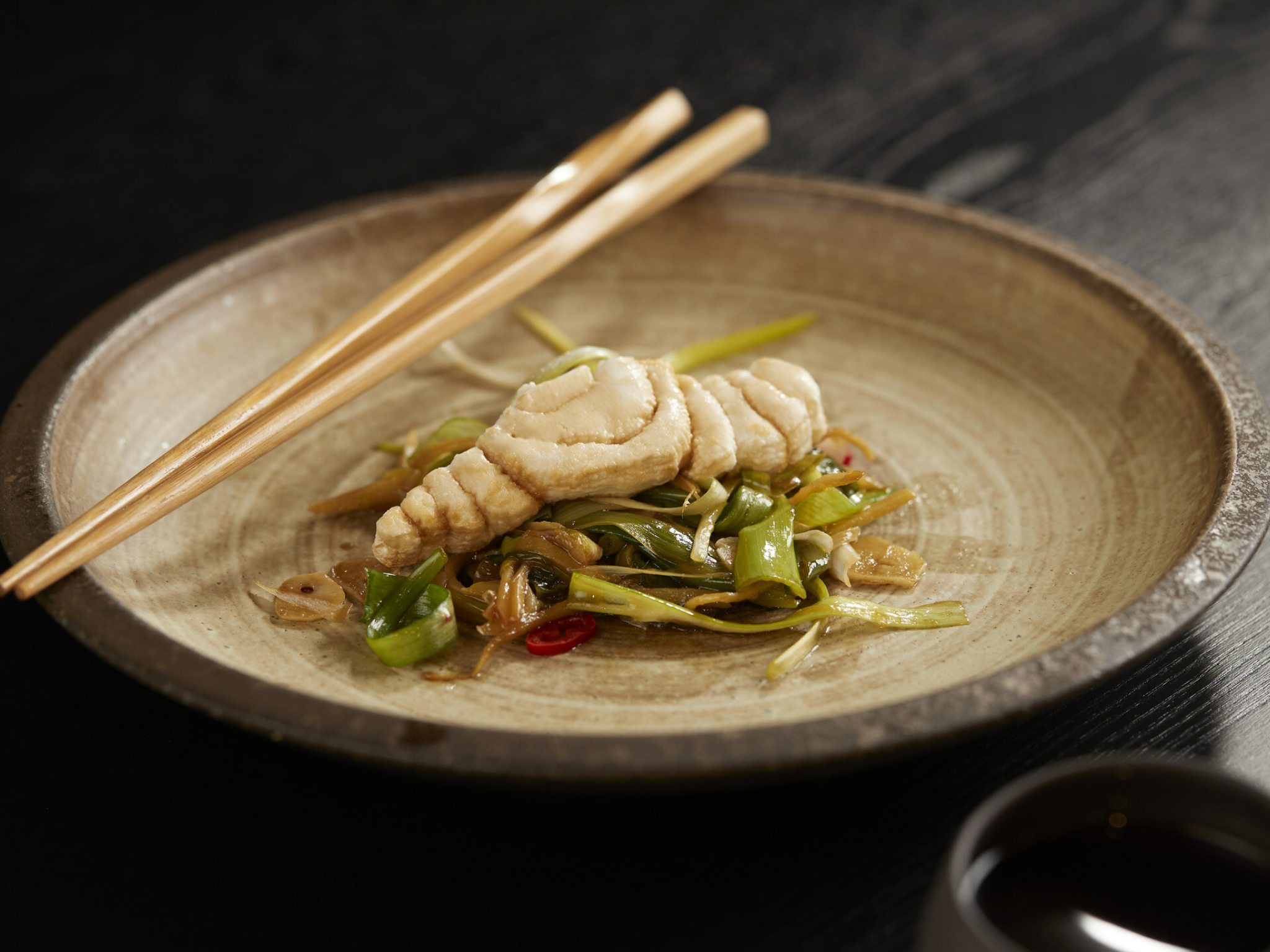Israeli-Singaporean Project to Bring ‘Commercial-Ready’ 3D-Printed Cultivated Seafood to Market
4 Mins Read
Alternative protein companies Umami Bioworks and Steakholder Foods have culminated their government-backed R&D project, and will now look to develop 3D-printed cultivated fish fillets at scale.
Singaporean cultivated seafood leader Umami Bioworks and Israeli 3D-printed protein producer Steakholder Foods are aiming to bring “commercial-ready” alt-seafood products to market after successfully completing a two-year-long R&D project.
The collaboration, backed by the Singapore-Israel Industrial R&D (SIIRD) grant, established the feasibility of producing 3D-printed cultivated fish fillets at scalable volumes, and will see the companies now team up with Singapore’s National Additive Manufacturing Innovation Cluster (NAMIC) to commercialise these products.
It comes a year after the two firms created a 3D-printed cultivated grouper fish that formed the centrepiece of dishes in a public tasting attended by industry and political leaders.
A portfolio of prototypes

Listed on the Nasdaq and Tel Aviv stock exchanges, Steakholder Foods has been around since 2019 and makes 3D-printing production machines and premix blends for plant-based and cultivated proteins, including beef steaks, white fish, shrimp, and eel. It’s also exploring the integration of cultivated cells.
Umami Bioworks, meanwhile, has used machine learning and bio-analysis to create a plug-and-play bioplatform for the discovery and development of cultivated seafood, and is working on a number of species with various partners. In March, it merged with fellow Singaporean startup Shiok Meats, establishing itself as a leader in the global cellular agriculture industry.
The two companies first came together on the joint project in July 2022, aiming to marry Umami Bioworks’s tech platform with Steakholder Foods’s 3D bioprinting capabilities to develop a scalable process for producing structured cultivated fish products.
Less than a year into the collaboration, they developed the grouper fish, a hybrid protein that was ready to cook, unlike fully cultivated meat products that still require incubation and maturation after being printed.
Now, the two have “laid the groundwork” for producing premium cultivated fish cuts, creating a portfolio of prototype designs to demonstrate the versatility of their technologies. To translate this effort into commercialisation in Singapore, they are working with NAMIC, a national platform hosted by the government’s Agency for Science, Technology and Research (A*STAR).
“Partnering with UMAMI Bioworks allows us to further extend our longstanding expertise in 3D printing of plant-based seafood to the production of cultivated products,” said Steakholder Foods CEO Arik Kaufman. “By leveraging our collective strengths, we aim to quickly develop commercial products that meet industry needs while aligning with regulatory and sustainability goals.”
Opening up regulatory pathways

Ho Chaw Sing, CEO of NAMIC, noted that the collaboration was timely, given Singapore’s push to achieve its food security goal of producing 30% of its food locally by 2030.
“With the aquaculture sector contributing significantly to this goal, we hope to bolster the cellular agriculture industry as an alternative to the agri-food industry by leveraging on Steakholder Foods’ proprietary 3D printing technology and Umami Bioworks’ cultivated bioproduct expertise to accelerate the development of alternative seafood products, with comparable taste and texture to natural seafood,” he said.
With NAMIC’s support, the companies will aim to develop product for both local and international markets. Their partnership also sets the stage for proactively navigating food safety standards and regulatory frameworks, which will ensure that these products can be rolled out swiftly when ready.
Singapore has a world-leading food tech ecosystem. It was the first country to clear the sale of cultivated meat back in 2020, and has a regulatory framework used by several countries and regions as a benchmark for novel food approval. But to date, no nation has given the go-ahead to a cultivated seafood product.
That may change soon, with Umami Bioworks pursuing approval in several markets, including Singapore, the US, and Europe. “Our partnership with Steakholder Foods is well aligned with our strategy to create a sustainable seafood platform with the scalability required for global impact,” said Mihir Pershad, founder and CEO of the cultivated seafood firm.
Over the last year, Umami Bioworks has been expanding its presence across the globe, setting up production lines in Malaysia and South Korea, collaborating with research initiatives in India, opening an office in the UK, and working with a pet food company to launch cultivated fish treats for cats in the US next year.
And last month, it launched a biotech tool for pathogen detection and quality assessments in the conventional seafood supply chain, expanding beyond alternative proteins to improve the efficiency of existing seafood production systems.



